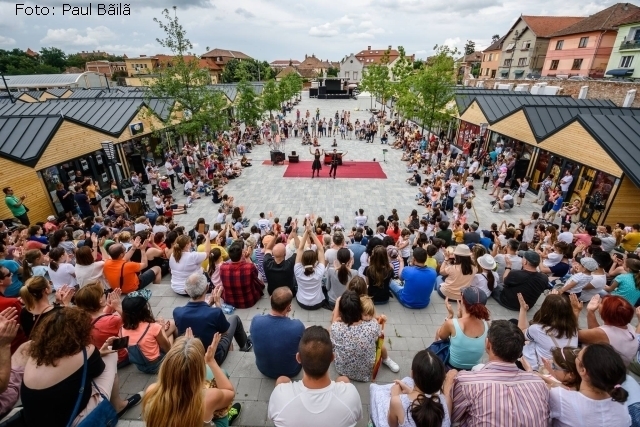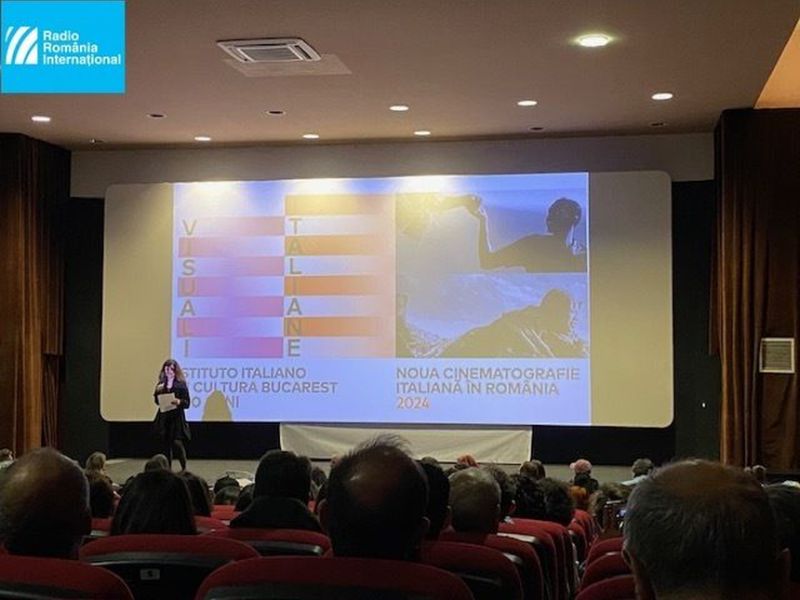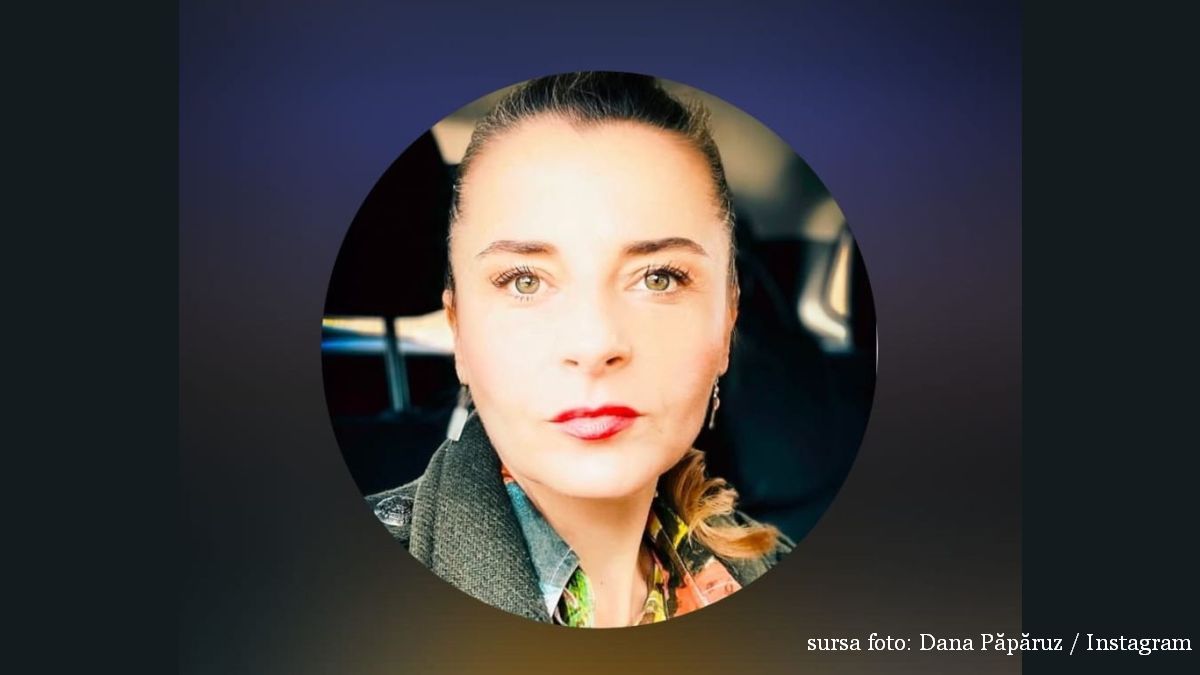Romanian Diaspora Artists at the Sibiu International Theatre Festival
The Sibiu International Theatre Festival is a marathon of stage performances, but also an opportunity for many prominent creators to meet
Warning: Trying to access array offset on null in /home/web/rri.ro/public/wp-content/themes/rri/template-parts/content.php on line 53

Warning: Trying to access array offset on null in /home/web/rri.ro/public/wp-content/themes/rri/template-parts/content.php on line 98
Luana Pleşea,
30.06.2018, 10:01
The festival is also the birth place of quite a few large-scale projects. At FITS, for instance, you can find out the latest from and see the works of the Romanian artists in the diaspora. Alexandra Badea, Eugen Jebeleanu and Cosmin Chivu, who have been living and working in France or the US, were present at the 25th edition of FITS, with performances featuring the actors of the Radu Stanca National Theatre in Sibiu.
Young stage director Eugen Jebeleanu has been living in France for eight years, but is currently working both in France and in Romania. In Sibiu, Eugen Jebeleanu stage-directed his first show in a state theatre, Gong Theatre, three years ago. Then he worked with the Radu Stanca National Theatre:
“I think I have never lost my connection with Romania. I left in 2010 for acting classes, and then I returned to Romania. I began staging performances in independent theatres, then I went back to France, I took my Master’s degree in directing, and travelled back to Romania… This movement between the two places has been constant, I’ve always worked in both countries. And what I want, at least for my own company and the people who work with it, is to develop a more concrete dialogue in this respect.”
Usually, Eugen Jebeleanu directs his own texts, or the texts of his partner, Yann Verburgh. But at the 2018 edition of FITS, Jebeleanu came with his stage version of Arthur Miller’s “View from the Bridge”, a Radu Stanca Theatre production. With details on that, here is Eugen Jebeleanu himself.
“I was taken aback by this play precisely because, although it is inspired by a true story from the 1950s, it has great resonance with what is going on today. I didn’t mean my play to be a manifesto, what I meant was to look at the condition of the man who is leaving, at how he experiences his departure to a place where he doesn’t belong, at how he relates to integration or disintegration. And also at the diaspora community, and the hierarchies within that community, which in turn is part of another, greater community… I was interested in how we end up doing unfair and mean things only in order to defend our own square-metre of territory, in how we turn into monsters just to wield power over the others, to control something or somebody.”
Playwright and stage-director Alexandra Badea has been living and working in France. Recently she has been offered collaboration with the Théâtre National de la Colline in Paris, whose director is the very well-known playwright and stage-director Wajdi Mouawad. Jointly with the “Radu Stanca” National Theatre actors, in Sibiu Alexandra Badea staged a show titled “Present perfect”, included in the programme of FITS. Alexandra Badea:
“I have come to Romania after eight years without any contact with Romanian theatre whatsoever. I was suggested a project with the theatre in Sibiu, Eugen told me that this theatre takes its plays on national tours, and that’s what persuaded me to come. I wrote the text for the actors in Sibiu. It is part of a trilogy I am currently developing at the Théâtre national de la Colline in Paris. In France, I work on what we could call the hidden stories, the untold stories, the events in recent history which have been overlooked a little bit. “Past perfect” is the story of a family retracing half a century of Romanian history, from 1941 in Iasi, to this day, covering the pogrom in Iasi in 1941, and the communism of the 1970s, where some people were informers while the others had to face the consequences. And, above all, it is a text I believe speaks about the young today, who to me seem to be maybe a lot more lucid and much more prepared to look at things differently and to take responsibility for the present in a different manner.”
For Cosmin Chivu this was the 7th consecutive year at FITS. A resident of New York since 2000, when he got his Master’s in stage directing at the famous Actors Studio School, Cosmin Chivu has staged more than 60 shows in professional theatres and universities in the US, Europe, Australia and Thailand. At present, Chivu is the director of the acting and directing department with the Pace School of Performing Arts in New York. At the FITS anniversary edition, Cosmin Chivu brought the musical “The Rocky Horror Show,” a co-production of the “Radu Stanca” National Theatre and the “Lucian Blaga” University in Sibiu, and a Romanian-French production, “Human States”.
“This year I directed a show entitled “Human states,” a music and poetry performance, presented twice at the Saint John Evangelical Church. And also this year I brought back “The Rocky Horror Show”. “Human States” started out from music, a music of the soul, with few words, a genre that is not very popular in Romania. It is a story where we witness what happens to us from the moment we are born until we die, with all our pleasures, joys and suffering. I also contributed to the Performance Stock Exchange. For three days running, theatre companies and performing art personalities from around the world came to Sibiu to present their work, to find partners and create projects and relations for the future. I moderated such exchange sessions. Companies from all five continents came, I believe. Participation this year was unprecedented.”
What prompts Cosmin Chivu to return to Sibiu year after year is the spirit of the festival:
“It started off from a very generous idea and from a small group of people that thought out an event bringing together creative minds and young artists who wished to share their work experiences with one another. That was in 1992-1993, and I took part in the first editions of the festival while still a student in Iasi. Now it has grown into a world-level event. And being able to witness this journey and to contrast what things were like back then what they are like now, and the effort these people put into it over the years, that is absolutely sensational.”
(Translated by E. Nasta)





























